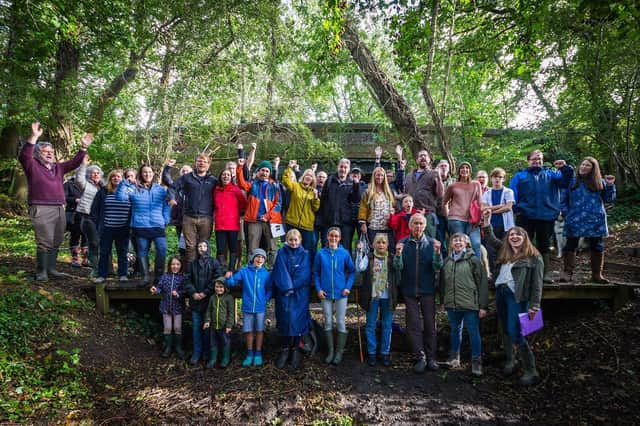Support to save Barcombe bridge


The leader of Lewes District Council, Cllr Zoe Nicolson, has written to Grant Shapps, the Secretary of State for Transport, demanding the ‘full and unequivocal cessation’ of the infill policy that threatens historic railway bridges, most notably for Lewes district, the bridge in Church Road, Barcombe.
The letter from Councillor Zoe Nicholson is in response to plans by Highways England to infill or demolish the bridge in Barcombe.
Advertisement
Hide AdAdvertisement
Hide AdCllr Nicholson said: “The government claimed to have put a stop on this deeply unpopular policy, yet in Barcombe there is clear evidence that Highways England is riding roughshod over any apparent pause in the programme and stealthily pushing ahead using their all-encompassing emergency powers, causing unnecessary destruction to nature and the countryside.
“I have asked the Secretary of State to urgently confirm a full and unequivocal cessation of the policy that leaves Highways England in no doubt whatsoever that they must stop and review their approach.”
Cllr Stephen Gauntlett, cabinet member for planning, said: “We are told that an initial assessment of the bridge has been carried out by Highways England and that they believe it is dangerous. If that is the case, the next appropriate step is to organise the necessary propping and remedial works to the bridge that can allow a more comprehensive survey to be undertaken and a full analysis of those findings.
“It is the very least that should be done when such an historic and important local landmark inevitably shows signs of its great age.
Advertisement
Hide AdAdvertisement
Hide Ad“This country has a proud reputation of preserving the structures, landscapes and rich heritage that form the backdrop to hundreds of years of English history.
“I hope the Secretary of State has that legacy in mind when he responds to the deep upset caused by Highways England in Barcombe.”
The bridge in Barcombe was built in the late 1800s as part of a railway line between Lewes and East Grinstead. While the railway hasn’t been used for decades, there is hope it could one day be reopened.
“It is currently a popular route for local walkers and campaigners say the plans to bury the historic bridge in a thousand tonnes of aggregate and concrete will block a wildlife corridor.
Advertisement
Hide AdAdvertisement
Hide AdLewes MP Maria Caulfield is backing the campaigners and said: “I am happy to say that I met with the minister last week and the plans to infill the bridge have been halted.
“The plans were initially agreed by National Highways under permitted development rights and so no consultation was required and so I was not informed of these plans.
“As soon as the plans emerged I raised this with transport ministers and the scheme has been halted indefinitely.
“I am working with residents to ensure that the work does not go ahead.”
Advertisement
Hide AdAdvertisement
Hide AdCampaigners say there has been confusion about whether the plans are going ahead, have been scrapped or just put on hold.
Graeme Bickerdike, a member of The Historical Railways Estate Group, said: “The community deserves straight answers from National Highways, not deceit.
“We know that all 68 schemes are currently paused, but - according to their published works programme - the bridge at Barcombe is identified for infill. Is that still their intention?”
National Highways head of Historical Railways Estate programme Hélène Rossiter said: “The Historical Railways Estate (HRE) is an important part of our industrial heritage. We continue to work closely with stakeholders to keep the estate and public safe, safeguard its future, ensure value for money for the taxpayer and re-use the assets wherever possible.
Advertisement
Hide AdAdvertisement
Hide Ad“Infilling of Barcombe Bridge has been paused to give more time for local authorities and interest groups to fully consider their local plans to benefit walking, cycling and heritage railways, and discussions are ongoing.”